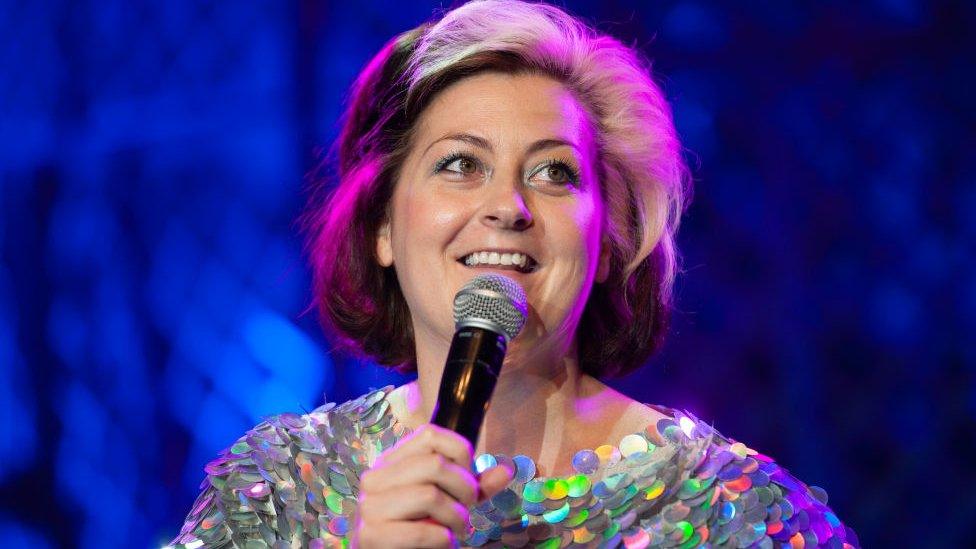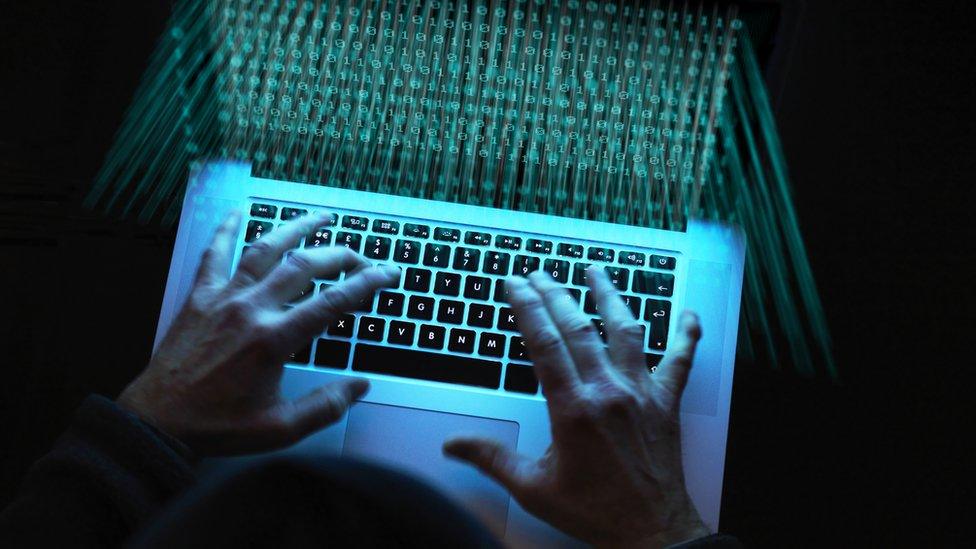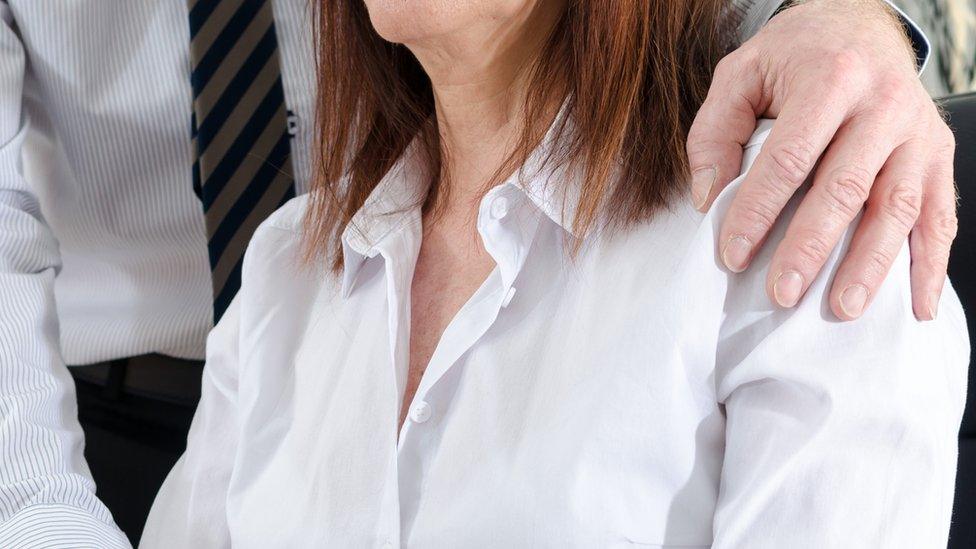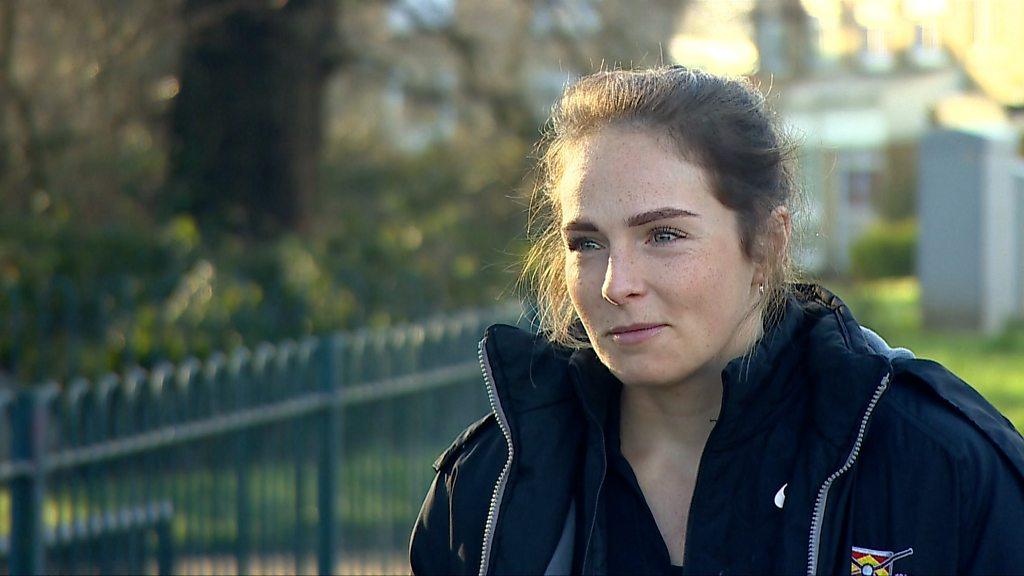Comedians stand up against workplace sexual harassment
- Published
Comics to set up 'HR service' to keep women on the circuit safe
A pair of comedians say they are standing up for victims of sexual harassment in the workplace by starting their own "HR service" for comics.
The move by Kiri Pritchard-McLean and Nina Gilligan comes as a report by Welsh Women's Aid found harassment "grey areas" went unchallenged.
Home-working had led to fewer reports of unwanted physical touching, a survey found.
But women fear retaliation and abuse being dismissed as "banter", it said.
Ms Pritchard-McLean said she wanted to tackle sexual harassment on the comedy circuit, as well as supporting the charity's campaign.
She said there were "so many horrifying, sad cases", adding there had been a scenario where a male promoter booking gigs for women at the last moment would explain it involved sharing a room with him.
"They have to make a judgement call - is that ok? Do I feel safe?," she said.
"It's cut people's careers short if they're not willing to do things that make them feel uncomfortable.
"There was one promoter who gave women a series of gigs, then started sending them very sexual text messages. When they complained their gigs were taken out of the diary and they're blacklisted and never booked again.
"Comedy is an industry of individuals operating in a very tough gig economy, which is why it's so prone to exploitation."
Ms Pritchard-McLean and Ms Gilligan are now setting up a human resources service called Get Off, for comedy venues to pay into to provide support and protection for workers and venues.
'Devastating impact'

Comedian Kiri Pritchard-McLean is now a familiar voice and face on radio and television, as well as the live comedy circuit
Charlotte Archibold, from Welsh Women's Aid, said many women who spoke up against harassment were often greeted with "hostility or gaslighting" and told they "don't know how to take a joke - 'it's just banter - and the cycle then continues".
"For far too long our society hasn't taken sexual harassment seriously and the reality is the impacts of it are far reaching and devastating," she said.
"We've heard from women who have lost their jobs, or felt no alternative but to leave their job.
"Women talk of the toll on their mental health and their career progression, and until we take sexual harassment seriously it will continue to be a huge cause of inequality in the workplace."
Sarah Chilton, an employment and discrimination lawyer, said often people were uncertain whether the harassment was worth jeopardising their career.
"Anyone who makes a complaint is protected by the law from victimisation - that's retaliation on the basis of having made a complaint.
"But not everyone will be aware that they have that protection - and even with that protection we see situations where people are still subject to retaliation for making a harassment complaint."
- Published2 February 2021

- Published4 February 2021

- Published19 June 2018

- Published2 February 2021
